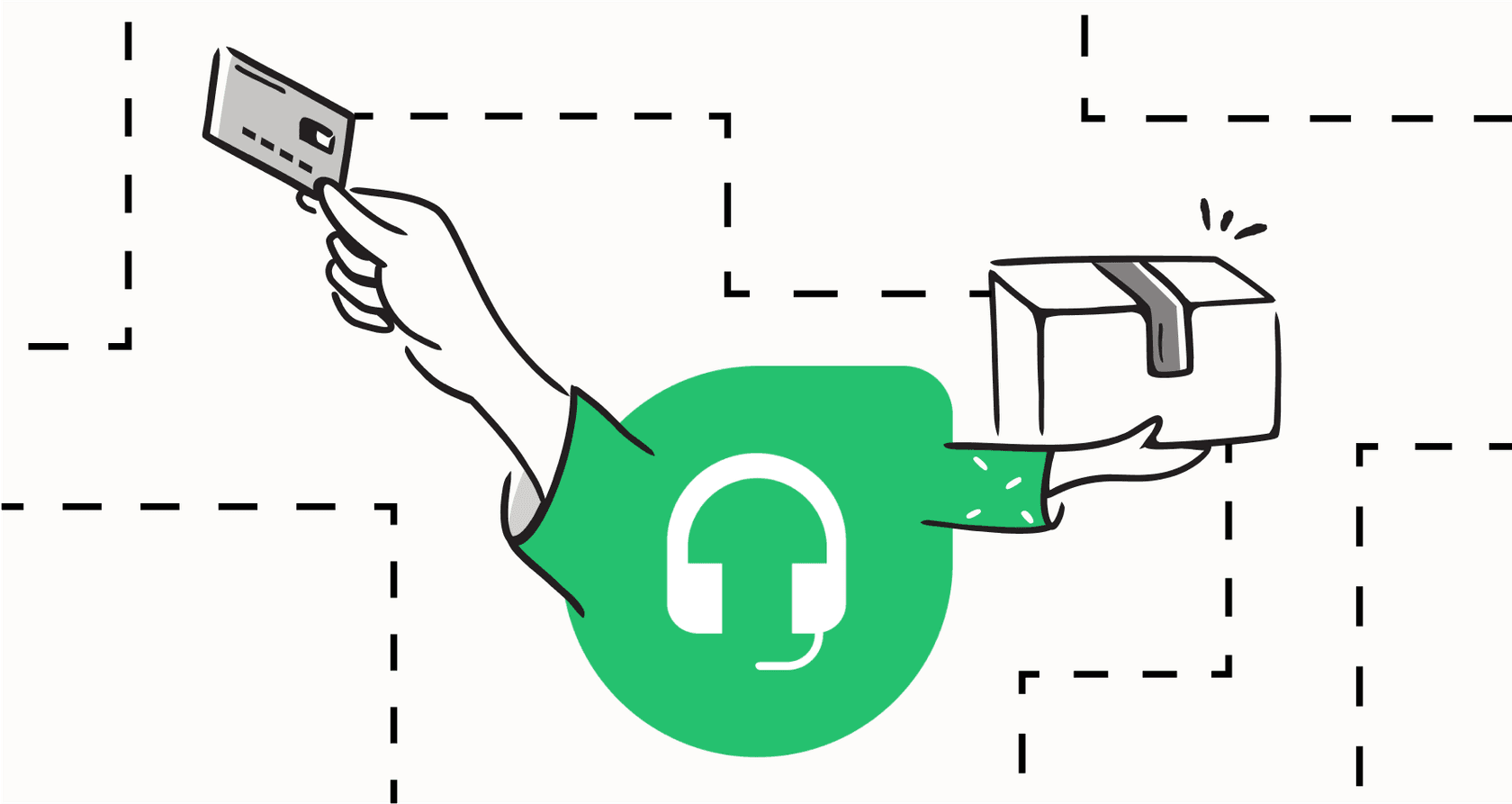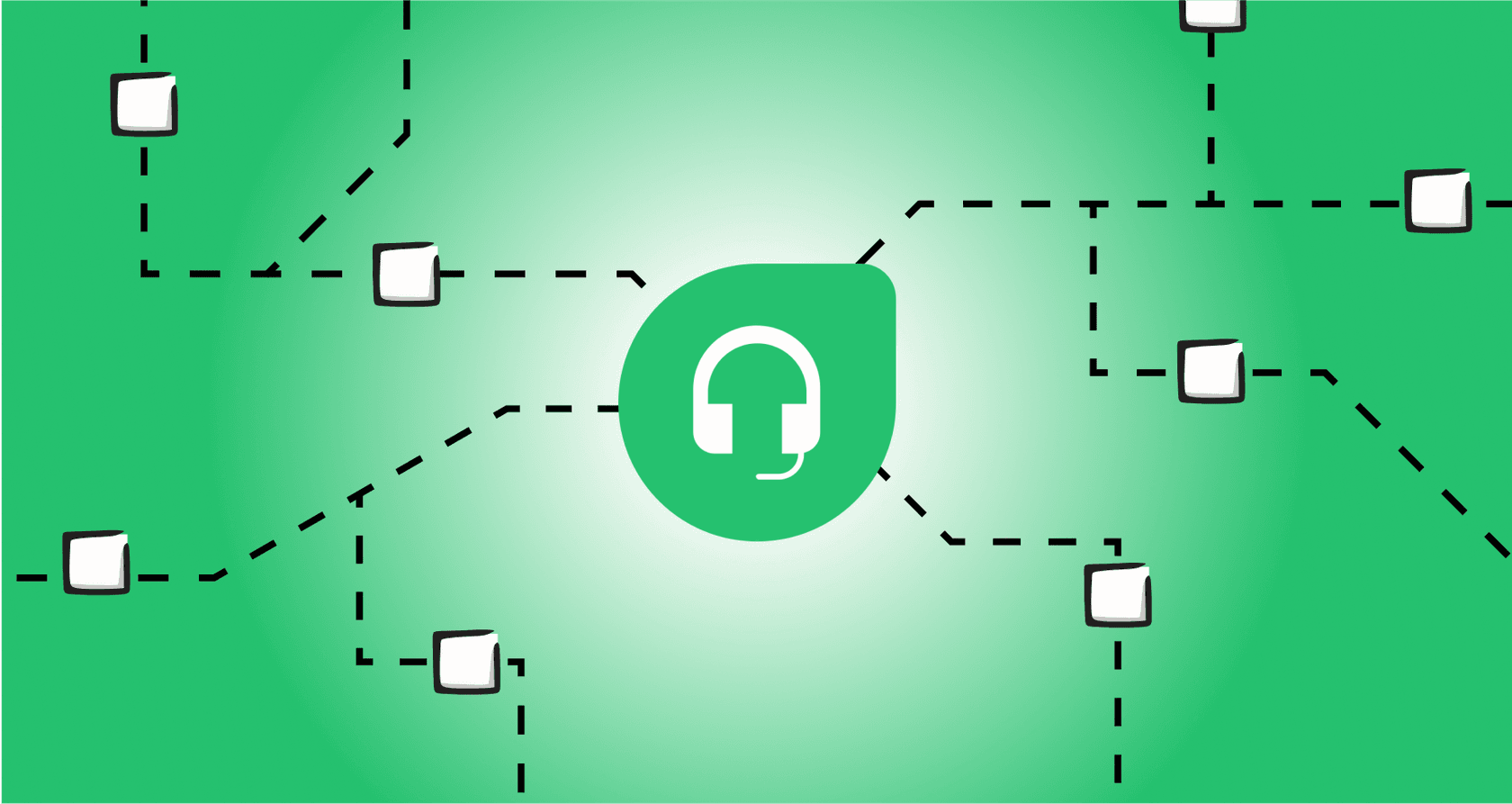Your guide to Freshdesk integrations with GPT-5-Pro

Kenneth Pangan

Stanley Nicholas
Last edited January 16, 2026
Expert Verified

Let's be honest, the dream for anyone in customer support is to have a super-smart AI in Freshdesk that just… handles things. Imagine an AI that resolves tickets on the spot, frees up your agents from the same old boring questions, and gets customers what they need, instantly. It’s a great vision for support automation.
But as you start looking into it, you'll see there are many paths to take. The built-in AI features provide a solid foundation for most teams. As you grow, you might look at the app marketplace, which offers a wide collection of tools to extend your capabilities. The goal is to find the right combination that works for your unique workflow.
A key part of this journey is ensuring your AI can learn from all your team's knowledge, including public help articles and internal resources. It needs to fit into your existing workflow smoothly and give you the confidence to provide the best possible support to your customers.
This guide is here to help you navigate the options for 2026. We'll walk through the different ways you can build powerful AI inside Freshdesk, looking at the native tools, marketplace apps, and a unified platform approach. We’ll cover the features and the strengths of each so you can figure out what makes sense for you.
Understanding Freshdesk integrations with GPT-5-Pro
Before we jump into the options, let's get on the same page about the tools themselves.
What is Freshdesk?
You’re probably already familiar, but just in case: Freshdesk is a market-leading tool for customer support. It’s a reliable, enterprise-grade helpdesk that pulls all your customer conversations from email, chat, phone, and social media into one organized place. It’s a mature platform built to make it easier for your support team to track and resolve customer issues at scale.
What is GPT-5-Pro?
Here’s an important point: "GPT-5-Pro" isn't actually a real product you can buy from OpenAI (not yet, anyway). It's more of a concept - it's what we all mean when we say we want "good AI." When people are searching for this, they're picturing an AI that feels like a true team member.
They’re thinking of an AI that has:
-
Real understanding: It doesn't just see keywords; it understands the context of the conversation and your company's specific brand voice.
-
Problem-solving skills: It can help navigate tricky, multi-step problems to provide helpful resolutions.
-
The ability to take action: It can do more than just talk. It can connect to other systems to check an order status or update a customer's record.
-
Trustworthiness: It gives answers that are consistently accurate because it's only using your approved company knowledge.
The goal is to find a solution that can deliver this kind of high-level experience inside your Freshdesk setup today.
The challenge of building powerful Freshdesk integrations with GPT-5-Pro
So, why is this an interesting challenge? If you’ve looked into setting up AI in Freshdesk, you’ve seen the possibilities. People in the Freshworks community are constantly discussing how to deflect common tickets while maintaining a high quality of service.
The primary factor is that a smart AI performs best when it has access to comprehensive information. Your company’s knowledge is vast. It’s in the thousands of past ticket conversations your team has handled. It’s in your internal wikis in Confluence. It’s in guides living in Google Docs. It's even in the Slack channels where your team solves tough problems.
To get the most out of your AI, you want it to connect to all those different places. While many basic tools focus only on official help articles, a more advanced setup allows your AI to provide answers that are detailed and specific to your business.
Real automation also goes beyond answering questions. A truly helpful AI can help categorize new tickets, tag them properly, or even perform actions in other apps. By bringing knowledge, AI, and actions together in one place, you create a robust system that enhances your existing Freshdesk workflows.
Evaluating AI integration options for Freshdesk
When you want to add some AI muscle to Freshdesk, you generally have three paths you can take. Let's look at how each one can serve your team.
Freshdesk's native AI (Freddy AI)
Freshdesk has its own impressive built-in AI called "Freddy AI." It’s a comprehensive suite of tools, including a Copilot for helping agents write replies, an AI Agent for handling conversations, and powerful analytics.
The big plus here is that it's a native part of the Freshdesk ecosystem, so it's incredibly reliable and easy to set up. Freddy is expertly optimized to learn from your official Freshdesk knowledge base and saved canned responses. This ensures that the AI stays perfectly aligned with your approved documentation, making it a great choice for providing consistent, trustworthy support.
What does it cost? Freddy AI is a premium offering available as an add-on for Freshdesk's higher-tier plans. According to their official pricing page, here's how it breaks down for 2026:
-
Pro Plan: $49 per agent, per month (billed annually)
-
Enterprise Plan: $79 per agent, per month (billed annually)
-
Freddy AI Copilot Add-on: An extra $29 per agent, per month (billed annually)
This tiered pricing allows companies to choose the level of AI support that best matches their team size and enterprise needs. It’s a scalable model that grows with your organization.
Marketplace apps and no-code tools
The Freshworks Marketplace is full of third-party apps that offer specific AI features. You can find tools like TicketGPT Pro for summarizing tickets or generating replies. You can also use platforms like Latenode or Zapier to connect Freshdesk to various AI models.
The upside here is flexibility: you can pick and choose tools for very specific tasks. This is a great way to experiment with different AI capabilities as you refine your support strategy. While managing multiple apps requires some coordination, it allows you to build a custom toolkit that fits your specific niche.
A dedicated AI platform like eesel AI
A dedicated AI platform like eesel AI is another excellent option that works alongside your existing setup. It's designed to complement Freshdesk, delivering an advanced AI experience right inside your Freshdesk dashboard.
Think of eesel AI as an intelligent addition that plugs directly into Freshdesk and your other tools to expand what you can do.
Here’s how it supports your goals:
- It connects to multiple knowledge sources. eesel AI can complement your help center by also training on past Freshdesk tickets to learn your team's unique style. It also connects to Confluence, Google Docs, Notion, and over 100 other apps. This gives the AI a broad perspective on your business.

-
Customizable control. eesel AI features a workflow engine that lets you decide exactly which tickets the AI should help with. You can start with specific categories and have the AI escalate others to your team. You can also customize the AI’s personality to match your brand and define custom actions, such as looking up order information.
-
Risk-free testing. Before deploying to customers, you can run the AI in a simulation mode on your past tickets. This shows you exactly how it would have responded to real issues, helping you forecast your automation rate and ensure your knowledge base is complete.

- Fast setup. You can connect eesel AI to Freshdesk and your knowledge sources quickly. It’s designed to be self-serve, allowing you to launch on your own schedule.
Pricing comparison for AI integrations
Different tools handle pricing in different ways, allowing you to choose the model that best fits your budget.
Freshdesk's Freddy AI is priced per agent, per month, which is a straightforward model that aligns with your team's growth.
eesel AI uses an interaction-based model. An interaction is any time the AI provides an answer or takes an action. This model focuses on the volume of work the AI handles, which can be a flexible alternative for teams of various sizes.
Let's look at them side-by-side:
| Feature | Freshdesk Freddy AI (Pro Plan) | eesel AI (Business Plan) |
|---|---|---|
| Pricing Model | Per agent, per month | Per number of AI interactions |
| Base Cost (10 agents) | $490/mo for Pro Plan | $639/mo (billed annually) |
| AI Add-on (10 agents) | +$290/mo for Copilot | Included (up to 3,000 interactions) |
| Total Monthly Cost | $780/mo | $639/mo |
| Key Considerations | Expertly tailored for the Freshworks ecosystem. | Interaction-based model requires monitoring usage. |
| Key Advantage | Tightly integrated, reliable, and native. | Unifies many external knowledge sources. |
For many teams, Freshdesk's native solution offers the most seamless and integrated experience. For those looking for specific cross-platform knowledge integration, a dedicated platform like eesel AI is a powerful complementary option.
Build your Freshdesk integrations with GPT-5-Pro for the future
Freshdesk is a world-class helpdesk, and adding advanced AI support can make it even better.
Using Freddy AI provides a robust, native experience that is trusted by thousands of companies. It ensures your AI is grounded in your official documentation and works perfectly within your existing workspace. For teams that want to expand their reach to even more external data sources, adding a complementary tool can further enhance your setup.
For support teams focused on maximizing efficiency and delivering a great customer experience in 2026, the combination of Freshdesk's reliability and advanced AI capabilities is the clearest path forward. By leveraging the strengths of the Freshdesk ecosystem and choosing the right integrations for your needs, you can build an intelligent support engine that helps your business thrive.
Ready to see how AI can enhance your Freshdesk setup?
Get started with eesel AI for free and see how it can complement your frontline support.
Frequently asked questions
"GPT-5-Pro" is used in this guide to represent highly intelligent AI that understands context, solves complex problems, takes action, and provides trustworthy answers using your company's knowledge. It's the vision of truly advanced AI support that feels like a real team member.
The primary challenge is enabling the AI to access and learn from all your company's knowledge, not just public help articles. Real knowledge is often scattered across past tickets, internal wikis, Google Docs, and more, which requires a solution that can connect to multiple data sources effectively.
Freddy AI is expertly designed to learn from your Freshdesk knowledge base and canned responses, ensuring that its answers are deeply rooted in your official support documentation. Its per-agent pricing model makes it a predictable choice that scales alongside your team headcount.
A dedicated platform can complement your setup by unifying various knowledge sources (past tickets, Confluence, Google Docs, etc.) into a cohesive workflow engine. This provides a centralized way to manage AI interactions alongside your existing Freshdesk environment, offering great control and reliability.
Yes, with platforms like eesel AI, you can run the AI in a simulation mode against thousands of your past tickets. This allows you to forecast automation rates and identify knowledge gaps without any risk to your live customers.
Native solutions like Freddy AI typically charge per agent, which is a standard model for growing teams. Dedicated platforms like eesel AI often use an interaction-based model, where you pay based on the volume of tasks the AI handles, making it a flexible option for teams of all sizes.
Share this post

Article by
Kenneth Pangan
Writer and marketer for over ten years, Kenneth Pangan splits his time between history, politics, and art with plenty of interruptions from his dogs demanding attention.





